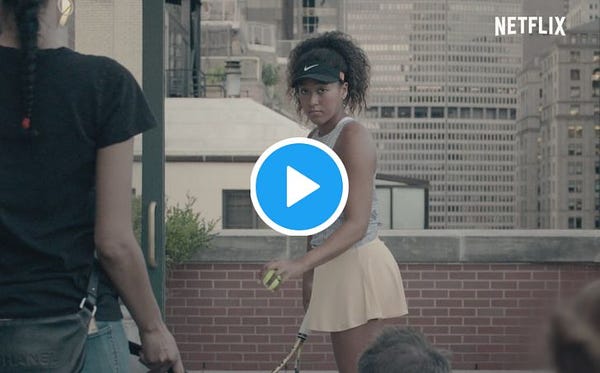Naomi Osaka is just another hypocritical athlete wanting things on only her terms
Naomi Osaka tried to say she struggles with the spotlight that comes with being a star athlete, but it turns out it's really about dictating the terms to embrace stardom.
I’ll start with two things. One, mental health issues are real no matter who you are and aren’t to be taken lightly. Two, this may be the only time I’ll write about tennis or any of its stars here at All The Balls, but hopefully I don’t lose you as a current/future follower and reader based on this.
At this year’s French Open Naomi Osaka, a rising young star ready to take the reigns from Serena Williams as the best player in women’s tennis, boycotted a press conference and ultimately withdrew from the tournament. She cited struggles with mental health as the reason, and too many athletes still don’t acknowledge their struggles in that area. Osaka pointed to being an introvert as well. She also withdrew from Wimbledon, but plans to participate in the upcoming Tokyo Olympics.
Weeks after that, Osaka announced that she did a cover story for the August issue of Vogue Japan. Then, Netflix announced the release of a documentary series about her coming in less than a week now.


Osaka apparently can’t handle press conferences, where tough questions might come after a lost match. The authorities over Grand Slam tournaments fining and threatening to fine her for not doing press conferences is over the top, but a precedent also can’t be set on the biggest stages in tennis with no consequence for not meeting those obligations. Many other stars across sports either do their media obligations, or they eventually get fined for not doing so. So fining Osaka for not facing media sessions is not an earth-shattering thing in the big picture.
But Osaka seems just fine with the spotlight, and even courting the spotlight, as long as it’s on her terms. The Vogue Japan cover story is surely highly complementary, and she surely had some editorial control over the Netflix thing. She isn’t the first pro athlete, or celebrity, to do those kind of things with complete (or at least a high level of) control over the final product. But in many other cases it doesn’t come at the expense of, or due to a boycott of, settings where untethered scrutiny may come. She is also on the cover of Time magazine ahead of the Olympics, where she wrote a related essay about mental health.
This is where I should note that Osaka is 23 years old. Imagine yourself at 23 years old (assuming you’re a good bit older than that). Could you have handled being a worldwide star, with all that it comes with? Nine out of 10 of us would say no, and the one exception is probably overestimating their ability to handle the trappings of stardom at that age.
Though she’s obviously not alone in her kind of hypocrisy among pro athletes (see Kyrie Irving, etc.), Osaka is definitely a hypocrite when it comes to when it’s time to embrace stardom and when it’s time to shrink from it under an umbrella of false pretenses.



